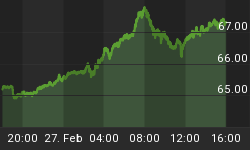In recent months talking heads, disappointed with the lack of economic recovery, have turned their attention to wages. If only wages could grow, they say, there would be more demand for goods and services: without wage growth, economies will continue to stagnate.
It amounts to a non-specific call to stimulate aggregate demand by continuing with or even accelerating the expansion of money supply. The thinking is the same as that behind Bernanke's monetary distribution by helicopter. Unfortunately for these wishful-thinkers the disciplines of the markets cannot be bypassed. If you give everyone more money without a balancing increase in the supply of goods, there is no surer way of stimulating price inflation, collapsing a currency's purchasing power and losing all control of interest rates.
The underlying error is to fail to understand that economising individuals make things in order to be able to buy things. That is the order of events, earn it first and spend it second. No amount of monetary shenanigans can change this basic fact. Instead, expanding the quantity of money will always end up devaluing the wealth and earning-power of ordinary people, the same people that are being encouraged to spend, and destroying genuine economic activity in the process.
This is the reason monetary stimulation never works, except for a short period if and when the public are fooled by the process. Businesses - owned and managed by ordinary people - are not fooled by it any more: they are buying in their equity instead of investing in new production because they know that investing in production doesn't earn a return. This is the logical response by businesses to the destruction of their customers' wealth through currency debasement.
Let me sum up currency debasement with an aphorism:
"You print some money to rob the wealth of ordinary people
to give to the banks
to lend to business
to make their products
for customers to buy with money devalued by printing."
It is as ridiculous a circular proposition as perpetual motion, yet central banks never seem to question it. Monetary stimulus fails with every credit cycle when the destruction of wealth is exposed by rising prices. But in this credit cycle the deception was so obvious to the general public that it failed from the outset.
The last five years have seen all beliefs in the manageability of aggregate demand comprehensively demolished by experience. The unfortunate result of this failure is that central bankers now see no alternative to maintaining things as they are, because the financial system has become horribly over-geared and probably wouldn't survive the rise in interest rates a genuine economic recovery entails anyway. Price inflation would almost certainly rise well above the 2% target forcing central banks to raise interest rates, throwing bonds and stocks into a severe bear market, and imperilling government finances. The financial system is simply too highly geared to survive a credit-driven recovery.
Japan, which has accelerated monetary debasement of the yen at an unprecedented rate, finds itself in this trap. If anything, the pace of its economic deterioration is increasing. The explanation is simple and confirms the obvious: monetary debasement impoverishes ordinary people. Far from boosting the economy it is rapidly driving us into a global slump.
The solution is not higher wages.















